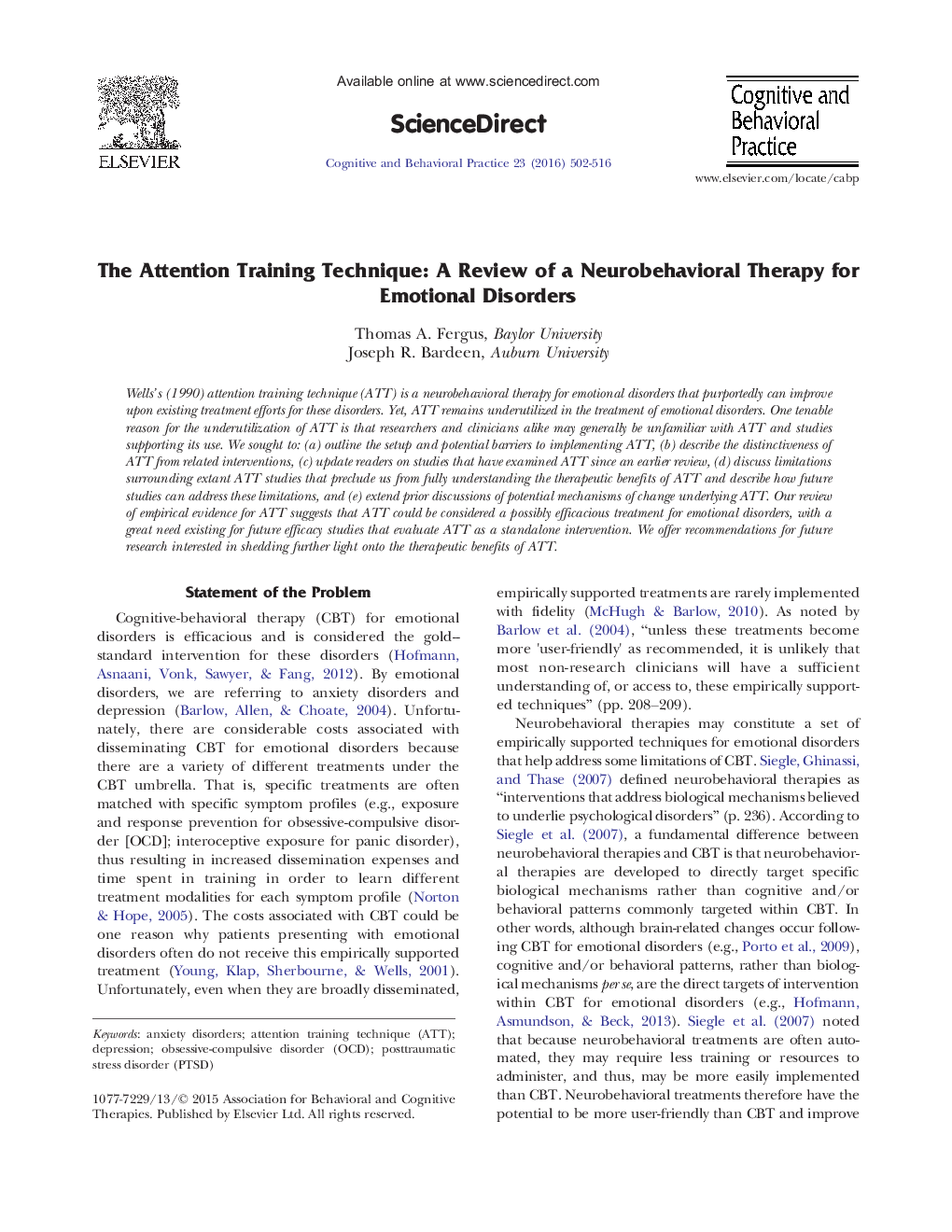| Article ID | Journal | Published Year | Pages | File Type |
|---|---|---|---|---|
| 5038622 | Cognitive and Behavioral Practice | 2016 | 15 Pages |
â¢The attention training technique (ATT) is a neurobehavioral therapyâ¢We review ATT treatment studies for emotional disordersâ¢ATT appears to be a possibly efficacious treatment for emotional disordersâ¢Limitations of ATT treatment studies are evaluated and recommendations offeredâ¢Attentional control is a promising candidate mechanism of change underlying ATT
Wells's (1990) attention training technique (ATT) is a neurobehavioral therapy for emotional disorders that purportedly can improve upon existing treatment efforts for these disorders. Yet, ATT remains underutilized in the treatment of emotional disorders. One tenable reason for the underutilization of ATT is that researchers and clinicians alike may generally be unfamiliar with ATT and studies supporting its use. We sought to: (a) outline the setup and potential barriers to implementing ATT, (b) describe the distinctiveness of ATT from related interventions, (c) update readers on studies that have examined ATT since an earlier review, (d) discuss limitations surrounding extant ATT studies that preclude us from fully understanding the therapeutic benefits of ATT and describe how future studies can address these limitations, and (e) extend prior discussions of potential mechanisms of change underlying ATT. Our review of empirical evidence for ATT suggests that ATT could be considered a possibly efficacious treatment for emotional disorders, with a great need existing for future efficacy studies that evaluate ATT as a standalone intervention. We offer recommendations for future research interested in shedding further light onto the therapeutic benefits of ATT.
